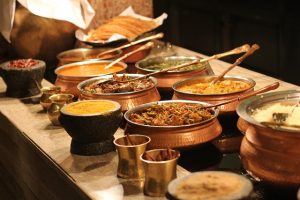Culture encompasses distinctive behaviors, values, beliefs, customs, norms, as well as other institutions and ways a group of people live life. This identifies them and is passed on from one generation to the next by learning and first-hand experience. The beautiful thing is, despite the cultural differences between and among cultures, interaction and interconnection happen.
 Food Connects Diverse Cultures
Food Connects Diverse Cultures
However different a culture is to another, there are a lot of elements that connect and bring cultures together. One of these is food. In fact, culture and food are deeply connected to each other given the fact that food is indispensable and integral to survival.
As it is a basic human need, our forebears gathered and prepared what was available and in ways possible. This is one reason why cultures differ, and why countries or regions of countries are often linked to specific foods as well as having varying preparation and cooking methods.
 In Japan, sushi is one dish that it is known for. In its unaltered form, sushi has been in existence for a considerable length of time. Now, it is mainstream and available in many places across the world, including the U.S, that there are several sushi near me. In New York City, Sushi Sushi has a wide selection of varieties of sushi as well as sushi rolls. From traditional sushi, not to mention their signature sushi rolls, to a range of modern sushi-inspired rolls, Sushi Sushi aims to serve the best sushi one can get in NYC, putting extra effort to keep the culture and authenticity of the dish, amidst the changing time and world.
In Japan, sushi is one dish that it is known for. In its unaltered form, sushi has been in existence for a considerable length of time. Now, it is mainstream and available in many places across the world, including the U.S, that there are several sushi near me. In New York City, Sushi Sushi has a wide selection of varieties of sushi as well as sushi rolls. From traditional sushi, not to mention their signature sushi rolls, to a range of modern sushi-inspired rolls, Sushi Sushi aims to serve the best sushi one can get in NYC, putting extra effort to keep the culture and authenticity of the dish, amidst the changing time and world.
 To the rest of the world, “sushi” is associated with raw fish given the fact that it can be served with a kind of fresh raw fish. But in Japanese, “sushi” refers to a unique round-grained type of rice, cooked and seasoned with rice vinegar, salt and sugar. Evidently, sushi has greatly changed and turned into an art, giving a diners a creative and delectable dining experience.
To the rest of the world, “sushi” is associated with raw fish given the fact that it can be served with a kind of fresh raw fish. But in Japanese, “sushi” refers to a unique round-grained type of rice, cooked and seasoned with rice vinegar, salt and sugar. Evidently, sushi has greatly changed and turned into an art, giving a diners a creative and delectable dining experience.
Food is influenced by culture, and culture can be influenced by food. So, with the continuous movement towards globalization, cultures in more and more societies are becoming diverse, making interaction between and among cultures inevitable. Because of this interaction, different cultures are shared, learned and experienced. This includes food culture. Today, there are different variations and varieties of food that were and are influenced by other cultures. Regardless, food is elemental to survival, but most importantly it continues to bring people together.

 Food Connects Diverse Cultures
Food Connects Diverse Cultures